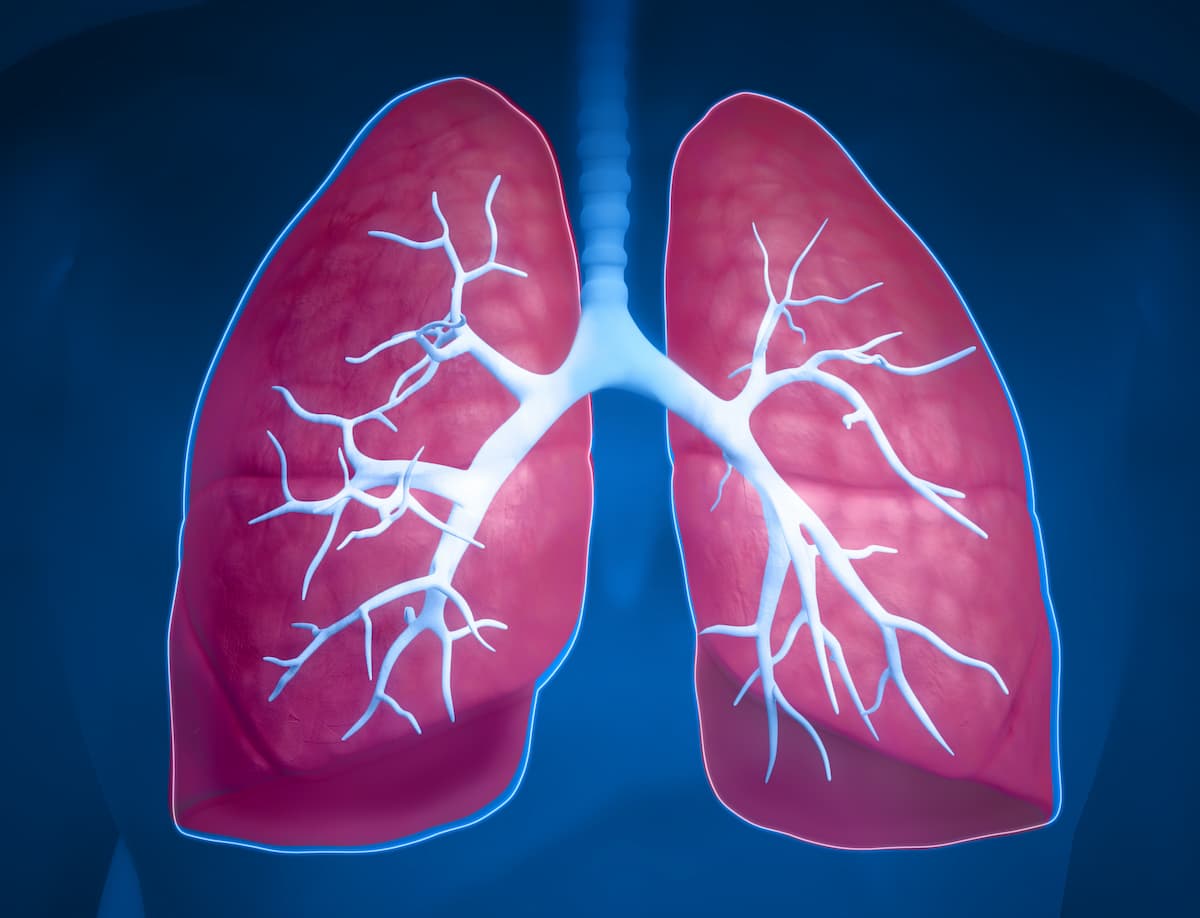FDA Accepts BLA for Datopotamab Deruxtecan in Advanced Nonsquamous NSCLC
Findings from the phase 3 TROPION-Lung01 trial support the biologics license application for datopotamab deruxtecan as a treatment for those with advanced nonsquamous non–small cell lung cancer.
“The improvement in [PFS] observed with [dato-DXd], particularly in patients with non-squamous tumors, and the improved tolerability of this antibody drug conjugate compared [with] docetaxel, represent a meaningful advance for patients with lung cancer," according to Aaron Lisberg, MD.

A biologics license application (BLA) for datopotamab deruxtecan (dato-DXd) as a treatment for adult patients with previously treated advanced nonsquamous non–small cell lung cancer (NSCLC) has been accepted from the FDA, according to a press release from AstraZeneca.1
The regulatory agency has set a Prescription Drug User Fee Act date in the fourth quarter of 2024 for making its decision on approving dato-DXd in the aforementioned population.
“Datopotamab deruxtecan has the potential to offer patients with previously treated advanced nonsquamous [NSCLC] an effective and tolerable alternative to conventional chemotherapy,” Susan Galbraith, executive vice president of Oncology Research and Development at AstraZeneca, said in the press release.1 “With regulatory discussions ongoing around the world and a parallel submission underway in the United States in breast cancer, this is only the beginning of our efforts to make this novel treatment available to patients as quickly as possible.”
Supporting findings for the BLA came from the phase 3 TROPION-Lung01 trial (NCT04656652), which investigators previously presented at the 2023 European Society for Medical Oncology Congress (ESMO).2
The median progression-free survival (PFS) according to blinded independent central review (BICR) was 4.4 months with dato-DXd compared with 3.7 months with docetaxel in the overall population (HR, 0.75; 95% CI, 0.62-0.91; P = .004). Additionally, the confirmed objective response rate (ORR) was 26.4% vs 12.8% in each respective treatment arm.
Among patients with nonsquamous NSCLC, the median PFS was 5.6 months in the dato-DXd arm vs 3.7 months in the docetaxel arm (HR, 0.63; 95% CI, 0.51-0.78). The confirmed ORR was 31.2% vs 12.8% in each respective treatment arm. Investigators highlighted that dato-DXd did not elicit a PFS benefit in those with squamous histology.
Data highlighted an overall survival (OS) benefit with dato-DXd vs docetaxel across the overall population (HR, 0.90; 95% CI, 0.72-1.13) as well as among patients with nonsquamous disease (HR, 0.77; 95% CI, 0.59-1.01), although statistical significance was not reached at the time of the analysis.
Grade 3 or higher treatment-related interstitial lung disease (ILD) affected 3% of patients who received dato-DXd and 1% of those who were treated with docetaxel. Regarding adjudicated drug-related ILD, 7 patients died, and 4 deaths were determined to be related to treatment with dato-DXd based on an independent committee assessment. Investigators concluded that there were no new safety concerns associated with dato-DXd.
“For patients with advanced [NSCLC], the current standard of care is second-line docetaxel and is associated with limited benefit and substantial toxicity,” study investigator Aaron Lisberg, MD, a thoracic medical oncologist at the University of California, Los Angeles Health, said in a press release on these findings.2 “The improvement in [PFS] observed with [dato-DXd], particularly in patients with non-squamous tumors, and the improved tolerability of this antibody drug conjugate compared [with] docetaxel, represent a meaningful advance for patients with lung cancer.”
In the international TROPION-Lung01 trial, approximately 600 patients with previously treated locally advanced or metastatic NSCLC harboring no actionable genomic alterations were randomly assigned to receive dato-DXd at 6.0 mg/kg or docetaxel at 75 mg/m2.
The trial’s dual primary end points were PFS and OS. Secondary end points included ORR, duration of response, time to response, and safety.
“We are encouraged by the FDA's acceptance of the BLA as we endeavor to make datopotamab deruxtecan the first TROP2-directed antibody drug conjugate approved to treat patients with nonsquamous [NSCLC] after disease progression on prior systemic therapy. We look forward to working closely with the FDA to bring datopotamab deruxtecan to patients,” Ken Takeshita, MD, global head of Research & Development at Daiichi Sankyo, concluded.1
References
- Datopotamab deruxtecan biologics license application accepted in the US for patients with previously treated advanced nonsquamous non-small cell lung cancer. News release. AstraZeneca. February 19, 2024. Accessed February 20, 2024. http://tinyurl.com/2v5k3yhc
- Datopotamab deruxtecan improved progression-free survival vs. chemotherapy in patients with previously treated non-small cell lung cancer in TROPION-Lung01 phase III trial. News release. AstraZeneca. October 23, 2023. Accessed February 20, 2024. http://tinyurl.com/5fpdwm99